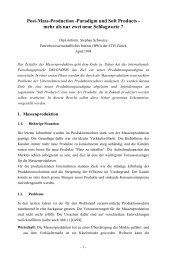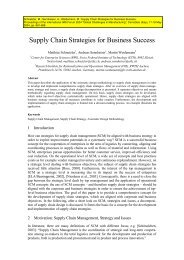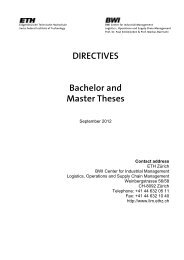The China Venture
The China Venture
The China Venture
Create successful ePaper yourself
Turn your PDF publications into a flip-book with our unique Google optimized e-Paper software.
2.3.3.2 Debt financing<br />
As getting the status of Chinese legal entities through official approval, FIEs are treated<br />
through the authorities and financial institutions as if they are Chinese domestic enterprises.<br />
According to the goal of the government to promote foreign direct investment into <strong>China</strong>, the<br />
FIEs can generally obtain more financial instruments of debt financing than their Chinese<br />
counterpart. <strong>The</strong> government also provides grants and financial support for financing<br />
corporate debt, if the potential debtors fulfil certain restrictions similar to Western standards.<br />
Similarly to Western standards, the loans can also vary in <strong>China</strong> according to currency, time<br />
limits, finance purpose etc. Nevertheless, Chinese authorities use different definitions for<br />
long- and short-term loans. Long-term loans include all loans with a time limit of more than<br />
twelve months. Loans with a maturity of 12 months or less are considered to be working<br />
capital, and are subject to different quota restrictions than longer maturity loans (see also part<br />
0). <strong>The</strong> definition of maturity orientates mainly on the financing purpose, as if the loan is<br />
meant to be for fixed or current assets. For investment projects, which exceed certain limits<br />
set by the Planning Bureau, approval of authorities is necessary. 61 Large infrastructure<br />
projects are still often funded over the budget state or provincial budget. Another issue to<br />
address is whether debt financing should be in RMB or foreign currency (usually USD).<br />
Many foreign investors have no choice. Often corporate policies require that investments be<br />
funded in local currency. Many consumer product companies with wide -spread activities in<br />
<strong>China</strong> will only consider expansion if they can secure adequate local currency funding. As<br />
policy they will not take the risk of a devaluation of the RMB. While conditions vary from<br />
place to place in <strong>China</strong>, in recent months it has generally been easier for joint ventures to<br />
obtain reasonably structured debt financing. Positive impacts by the PBOC on RMB debt<br />
financing have been its announcement to abolish the lending quota system and its lowering of<br />
RMB interest rates, because of the decline in economic growth and the fall in inflation. 62<br />
A joint venture or a WFOE in <strong>China</strong> may, according to the „PRC Commercial Bank Law“<br />
obtain a RMB loan from a Chinese bank. Having sufficient RMB is necessary to cover the<br />
costs of everyday expenses such as raw materials, labour and public utilities. Security interest<br />
for the loan may be required by the bank issuing the loan, and such security may take the form<br />
of a guarantee or charge over various assets of the enterprise. Concerning the security,<br />
investors have to keep in mind some Chinese specific features, such as the non-conveyance of<br />
61 Fan, 1994, pp. 198.<br />
45






